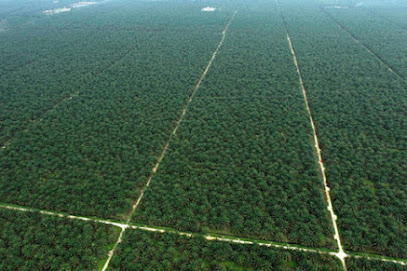Monitoring until action needs to be done to get optimal results according to the expected target. Ensuring that the supply of nutrients and water is always sufficient for the needs of plants is an important thing to do. Other variables that affect the process of nutrient absorption and plant growth need to be properly monitored. Biochar is a soil amendment to improve soil properties such as soil structure, soil aeration, water and nutrient availability, suppress the development of certain plant diseases, create good habitats for symbiotic microorganisms and reduce soil acidity. Biochar also adsorbs greenhouse gases in the form of carbon dioxide from the atmosphere, thereby reducing these gases in the atmosphere. It is important that sensors are used to read the variables above. How many sensors are installed and what type is also very dependent on the objectives being achieved. The use of various sensors in large numbers is also a cost in itself, while a production is always looking for the most efficient way to maximize profit. The use of sensors that are effective and efficient is the key to successfully monitoring the conditions of biochar applications in the field with a specified period of time, even real time all the time.
IoT (Internet of Things) is predicted to become a trend in the near future and it cannot be avoided. A number of plantation areas that are located far away in remote villages, such as in palm oil plantations, are generally still constrained by the internet network, this condition makes IoT unable to be applied or still not optimal. Palm oil plantations are one of the ideal locations for biochar applications for large capacities as well as IoT, for more details read here. While waiting for an internet network in the area provided by a telecommunications company, satellite signals can be used even with small data usage so that the information displayed is also less and simpler. This makes only really important information that needs to be monitored, especially on plantation locations that are difficult to reach. At such a stage manual monitoring is still much needed, so the online information from the satellite only helps for verification. Devices such as drones can also be used to monitor growth or general the plantation conditions.
Basically, IoT and its supporting devices such as artificial intelligence and big data are tools to help make decisions, especially for the plantation manager such as palm oil plantations. Knowing the condition of the plantation so that it can maintain the level of plantation productivity performance is an important part of maintaining the company's performance itself. Even though IoT devices help in such a way, the important thing that is still needed is basic knowledge to the characteristics of plantation management itself. These sciences will be very useful for analyzing the data presented by IoT devices more sharply and accurately or on target. Selection of sensors, the number of sensors to the location of the sensor installation must be carried out effectively and this can only be done with an adequate scientific basis. A number of chemical analyzes in general also cannot be done sensory but using reagents and so on. In addition, IoT is also a new thing so that a number of certain activities or practices in certain agriculture or plantations and more specifically in the biochar application have not been identified for IoT developers. This is so that collaboration between researchers, practitioners and IoT developers is needed so that IoT device products will also be more effective and efficient.








No comments:
Post a Comment